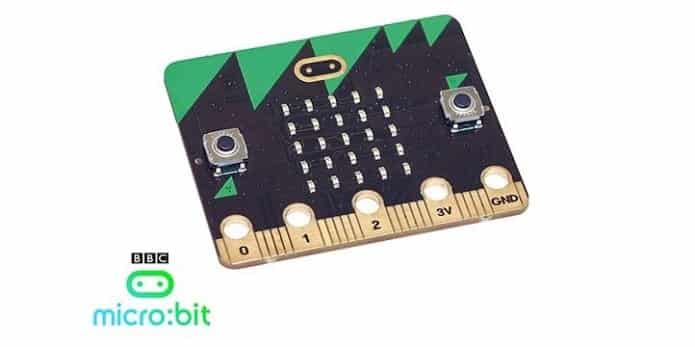Table Of Contents
BBC to give free Micro Bit computers to children to help them write codes and test them
The final design of the Micro Bit, a pocket-sized computer was revealed by BBC. In October, about one million UK-based children are said to receive this set.
The device that features a programmable array of red LED lights has a built-in motion sensor and two buttons that were not considered in the prototype displayed in March. However, this change leaves no slot for a thin battery anymore, which in turn may reduce its appeal as a wearable device.
To use it as a standalone product, an add-on power pack fitted with AA batteries will be required.
Tony Hall, Director General of BBC said that the device should help to deal with the fact that children were leaving school being aware of how to use computers but not how to program them.
At a event launch in London, he said “We all know there’s a critical and growing digital skills gap in this country and that’s why it’s so important that we come together and do something about it.”
Flashing lights
Children will be stimulated to write simple code for the Micro Bit via a new website, which will be easy to use on both mobile devices and PCs.
Before they transfer them to the tiny computer via a USB cable or wireless Bluetooth connection, they would be able to save and test their programs on the site.
The Micro Bit can then be made to communicate with its buttons and built-in sensors to make its 25 LEDs flash in different designs, letting it display, for instance, numbers and letters.
In addition, in order to carry out more complicated tasks, it can be connected to other computing kit via its input-output rings, including the Arduino, Raspberry Pi and Galileo.
It is recommended:
- the Micro Bit’s built-in magnetometer sensor can be used to help create a metal detector
- its accelerometer to make a hi-tech spirit level
- its Bluetooth chip to control a DVD player
- its two buttons to create a video games controller
The BBC defines the 4cm by 5cm (1.6in by 2in) device and an associated Make It Digital campaign as its “most ambitious education initiative” from the time the BBC Microcomputer System was released in the 1980s.
Although the previous computer was sold for hundreds of pounds, the Micro Bit is being given away to every 11 year-old and 12 year-old child in Year 7 or same at school.
Sinead Rocks, BBC Learning head said: “The BBC Micro Bit is all about young people learning to express themselves digitally.”
“As the Micro Bit is able to connect to everything from mobile phones to plant pots and Raspberry Pis, this could be for the internet-of-things what the BBC Micro was to the British gaming industry.”
When four months ago, BBC had announced the device was announced, it had publicized the fact that it could be without any difficulty be pinned onto a child’s clothing.
However, one of the changes makes that less practical, as it involves the watch-battery slot taking the place of a bulkier battery pack.
A spokesman said: “The initial prototype utilised a smaller battery, however in reviewing the design and examining the health and safety implications of using small batteries for a young audience, where siblings may be able to access the device, the partnership took the decision to re-engineer this element.”
“Each BBC Micro Bit will now use a discrete battery pack, which can be removed from the device.”
Sales plan
While the BBC is the one who initiated the project, other organizations which include the chip designer Samsung, Microsoft, ARM, Barclays Bank and Lancaster University are also offering funds and expertise to make the scheme turn into reality.
Additionally, ScienceScope, the Wellcome Trust and others will assist in preparing school teachers for the rollout, while the volunteer-led groups that includes Code Club and Coderdojo have promised support.
Initially, only the school children would qualify for a free Micro Bit when the supplies are out in late October. However, the BBC has confirmed that before the end of the year, the computers will go on sale to others in the UK and overseas as well.
It also has plans to make the machine’s specifications open source. While on a flight over Russia, one of ARM’s engineers assisted in designing its hardware.
Prof Mitchel Resnick, who heads the team that develops Scratch, a popular programming tool already used to assist children in learning to code, at Massachusetts Institute of Technology, said: “I see coding as a new type of literacy.”
“When kids learn to code, they learn new ways of expressing themselves and organising their ideas.”
“These skills are important for everyone, not just those who plan to pursue computing careers.”
Source: BBC

